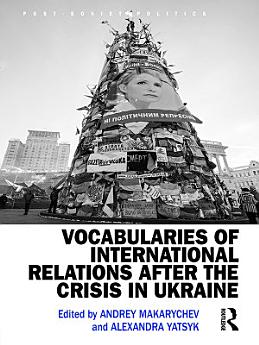Vocabularies of International Relations after the Crisis in Ukraine
About this ebook
These questions are the starting points for this book covering conceptualisations from rationalist to reflectivist, and from quantitative to qualitative. Most contributors agree that many of the old concepts, such as multi-polarity, spheres of influence, sovereignty, or even containment, are still cognitively valid, yet believe the eruption of the crisis means that they are now used in different contexts and thus infused with different meanings. It is these multiple, conceptual languages that the volume puts at the centre of its analysis.
This text will be of great interest to students and scholars studying international relations, politics, and Russian and Ukrainian studies.
About the author
Andrey Makarychev is Guest Professor at the Johan Skytte Institute of Political Science, University of Tartu, Estonia. He has published many books and research articles on a variety of topics related to Russian foreign policy.
Alexandra Yatsyk is Visiting Researcher at the Centre Russian and Eurasian Studies, University of Uppsala, Sweden, and Head of the Centre for Cultural Studies of Post-Socialism, Kazan Federal University, Russia.




